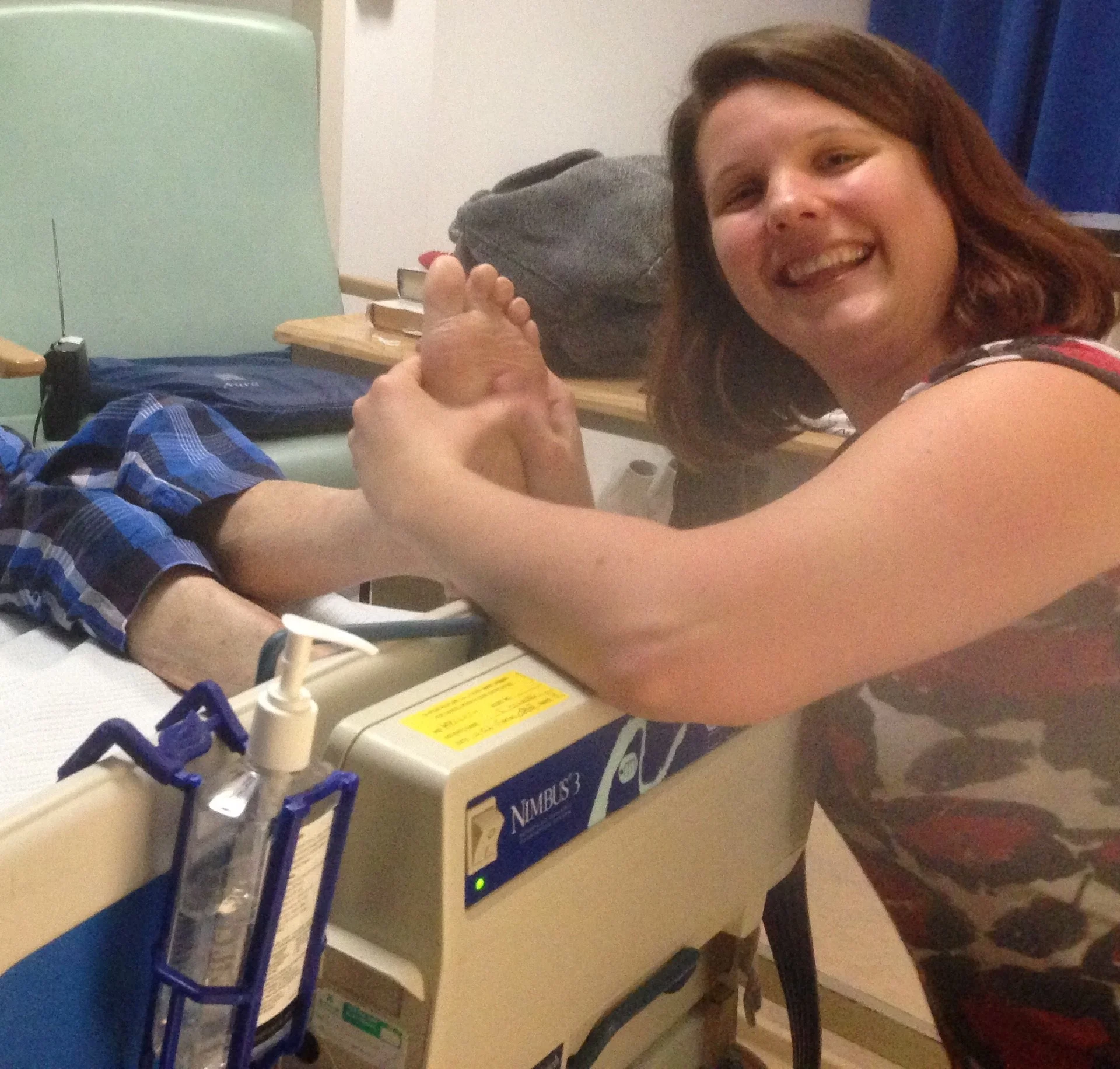A 'touch' of magic - what are the benefits?
Catherine from Tactile Tots talks to us about the importance of 'touch' and how we can incorporate this into everyday life.
From the moment we are born the impact that skin to skin contact has on our physical and mental wellbeing is huge.
The action of placing a newly born infant directly on their parent’s chest has unbelievable, almost magical benefits. The baby is calmed and comforted by the skin to skin contact, lowering their heart and breathing rates and stabilising their body temperature. The powerful, love hormone oxytocin rushes through both parent and child and so starts a life long relationship between touch and feeling loved, calm and safe.
Touch is part of being human, it connects us to one another and strengthens our relationships. So much so that some scientists even call our skin the “Social Organ”, the role touch plays in our society is key. Much like the way animals use grooming as a way of enhancing social bonds and building trust. Babies crave touch and as Harlow’s seminal research with Resus monkeys showed physical touch is a matter of survival. In his experiments when separated from their mother, baby monkeys were so distressed they refused food and became withdrawn and anxious. In a desperate bid for physical comfort these poor little monkeys would cuddled up to a cloth on a wire doll in preference even to food.
In fact, skin to skin contact has been shown to be so powerful that in premature babies when kangaroo care is use (babies being cuddled under their parent’s clothes for extended periods of time) the babies vital signs stabilise, they sleep better, grow faster and leave hospital sooner. How utterly amazing is that!
In the early hazy days of a new born, parents can lose many an hour just holding their baby. Gazing at their tiny features and stoking every inch of perfect, new skin is almost compulsive and that gorgeous new born smell has been shown to be so addictive it actually changes a mother’s brain chemistry.
But all too soon those days slip away into months and as our children grow sharing touch can become more challenging. In the course of a busy day, rushing here and there, touch can sometimes become mechanical, completing tasks such as washing and dressing with the odd speedy kiss and cuddle night, night. We lose those hours of precious cuddles and skin to skin time as our babies grow and wriggle away from us.
As our children get older touch becomes more complicated and much more of a two-way conversation, no longer will your baby want to be passively held. Cuddles are given as well as received and touch becomes a matter of permission. All too often in our house Daddy’s offer of hand holding is rejected with a rather dramatic “NO DADA!” But as much as this rejection may sting for parents, it is a key developmental stage. Learning that you are in charge of your own body is vital and being able to decide who touches it and when, is an important part of that. Children need the opportunity to give permission to be touched and as much as possible this needs to be respected.
Now, obviously you can’t ask permission to touch your child in every situation, a dirty nappy for example has to be changed no matter what. But being open to your child refusing touch when it isn’t a necessity will set them in good stead for life.
Having said that we shouldn’t be afraid of touch, it’s such a tragedy that worry and paranoia has taken such a hold in our nurseries and schools, that those who care for our children feel they can’t cuddle them when crying or injured. Young children crave physical closeness and need to be comforted with loving touch. What’s key is teaching our children when its not ok!
So, what’s a simple way to increase that positive touch between you and your child…well its massage. Whether massaging a baby, a toddler, a child or even a teenage, massage offers a two-way communication when words don’t suffice. Massage releases those wonderful feel good hormones and teaches your child about their own body and their power to control how and who touches them.
Even between partners and friends the power touch has continues to be key to mental wellbeing and feeling loved. A significant reason I married my husband was that he was willing to massage my feet! It’s such a low key and simple way to sit down together, discuss our days and, well express our love (bleurgh).
Throughout our lives this need to be touched doesn’t change or disappear but sadly as we get older, positive touch can sometimes become a rare thing. When we are ill or elderly, touch can once again become a mechanical process of care rather than love. Being dressed and washed by someone else might become a necessity but it doesn’t replace loving touch. When my grandfather was in hospital shortly before he died, one of the most meaningful interactions we had was when I offered to rub some cream into the dry skin on his feet and legs. Using the massage strokes, I learnt in my baby massage training to apply cream, I enjoyed one of the most honest and open conversations I had ever had with my grandfather. This level of touch was not the norm for our relationship but in his last days having endured a number of medical procedures, I truly believe this positive touch gave him a period of relaxation and relief that medication could not.
When I say in my classes that massage is for life, I know the parents don’t always believe me. The thought of massaging their tweenager or grown up child seems an alien concept but as I always tell them if massage is part of your child’s life, then one day they will return the favour. They will recognise how important it is to be touched as they will remember the contentment massage brought them. So on that one day when you are the one who needs caring for and have no one else that touches you, your child will return the love and comfort you gave them by giving your feet a massage too.
To find out more about Catherine and her business Tactile Tots, visit her website or drop her an email. Alternatively, follow her on Facebook, Instagram or Twitter.



